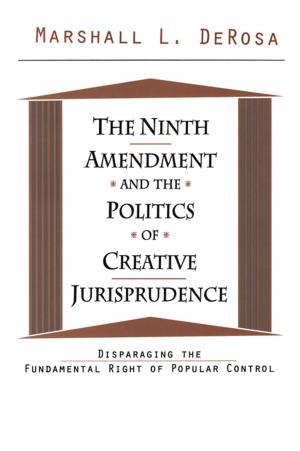Early Modern English Lives
Autobiography and Self-Representation 1500–1660
Fiction & Literature, Literary Theory & Criticism| Author: | Ronald Bedford, Lloyd Davis | ISBN: | 9781351942409 |
| Publisher: | Taylor and Francis | Publication: | December 5, 2016 |
| Imprint: | Routledge | Language: | English |
| Author: | Ronald Bedford, Lloyd Davis |
| ISBN: | 9781351942409 |
| Publisher: | Taylor and Francis |
| Publication: | December 5, 2016 |
| Imprint: | Routledge |
| Language: | English |
How did early modern English people write about themselves, and how do we listen to their voices four centuries later? The authors of Early Modern English Lives: Autobiography and Self-Representation 1500-1660 argue that identity is depicted through complex, subtle, and often contradictory social interactions and literary forms. Diaries, letters, daily spiritual reckonings, household journals, travel journals, accounts of warfare, incidental meditations on the nature of time, death and self-reflection, as well as life stories themselves: these are just some of the texts that allow us to address the social and historical conditions that influenced early modern self-writing. The texts explored in Early Modern English Lives do not automatically speak to our familiar patterns of introspection and self-inquiry. Often formal, highly metaphorical and emotionally restrained, they are very different in both tone and purpose from the autobiographies that crowd bookshelves today. Does the lack of emotional description suggest that complex emotions themselves, in all the depth and variety that we now understand (and expect of) them, are a relatively modern phenomenon? This is one of the questions addressed by Early Modern English Lives. The authors bring to our attention the kinds of rhetorical and generic features of early modern self-representation that can help us to appreciate people living four hundred years ago as the complicated, composite figures they were: people whose expression of identity involved an elaborate interplay of roles and discourses, and for whom the notion of privacy itself was a wholly different phenomenon.
How did early modern English people write about themselves, and how do we listen to their voices four centuries later? The authors of Early Modern English Lives: Autobiography and Self-Representation 1500-1660 argue that identity is depicted through complex, subtle, and often contradictory social interactions and literary forms. Diaries, letters, daily spiritual reckonings, household journals, travel journals, accounts of warfare, incidental meditations on the nature of time, death and self-reflection, as well as life stories themselves: these are just some of the texts that allow us to address the social and historical conditions that influenced early modern self-writing. The texts explored in Early Modern English Lives do not automatically speak to our familiar patterns of introspection and self-inquiry. Often formal, highly metaphorical and emotionally restrained, they are very different in both tone and purpose from the autobiographies that crowd bookshelves today. Does the lack of emotional description suggest that complex emotions themselves, in all the depth and variety that we now understand (and expect of) them, are a relatively modern phenomenon? This is one of the questions addressed by Early Modern English Lives. The authors bring to our attention the kinds of rhetorical and generic features of early modern self-representation that can help us to appreciate people living four hundred years ago as the complicated, composite figures they were: people whose expression of identity involved an elaborate interplay of roles and discourses, and for whom the notion of privacy itself was a wholly different phenomenon.















